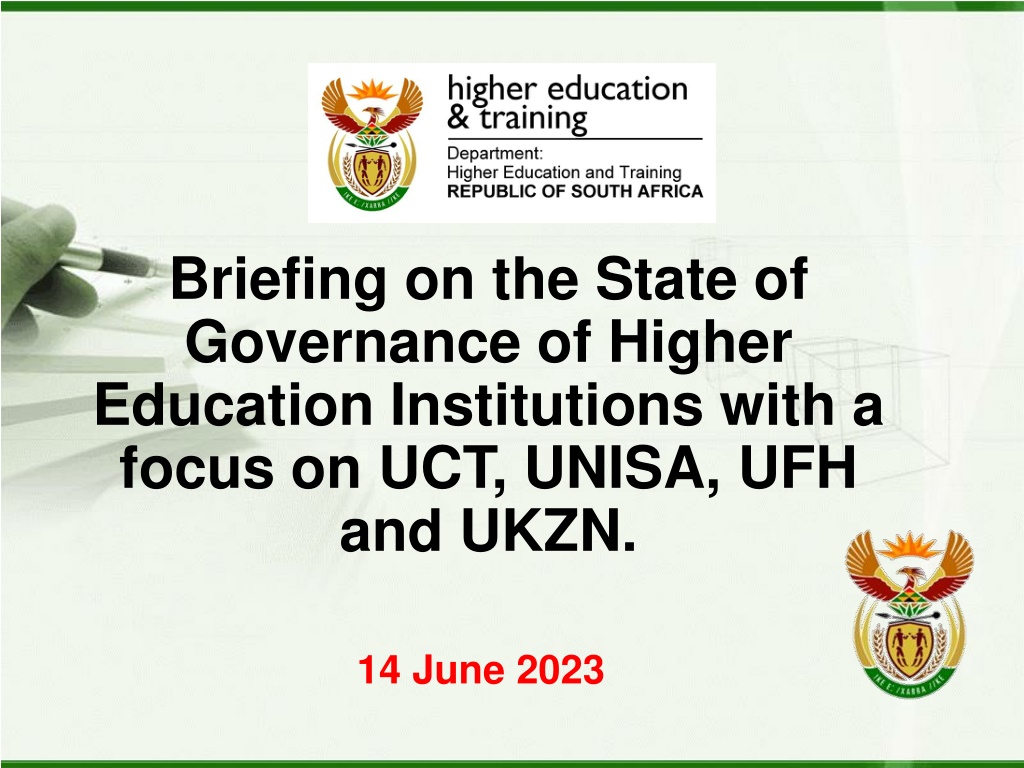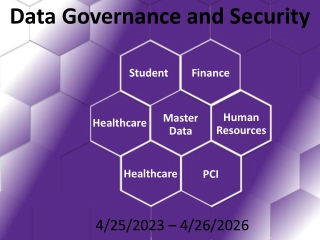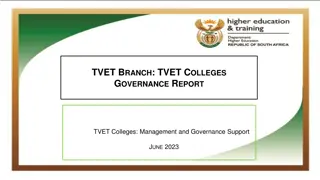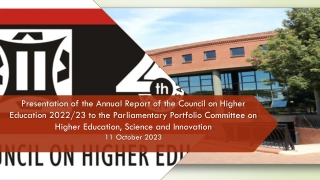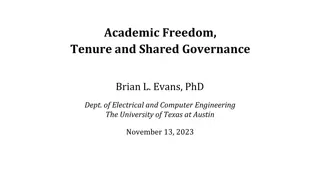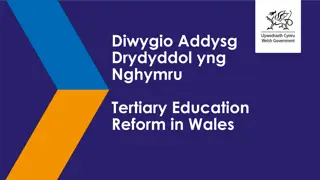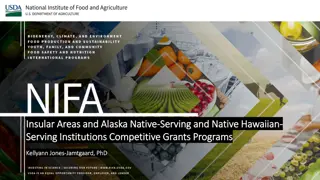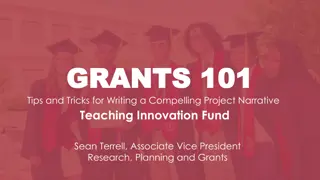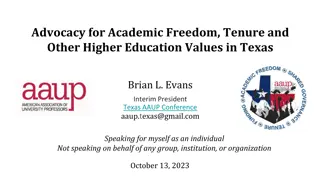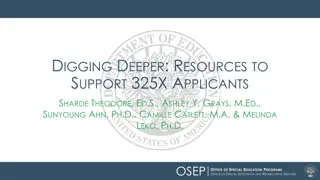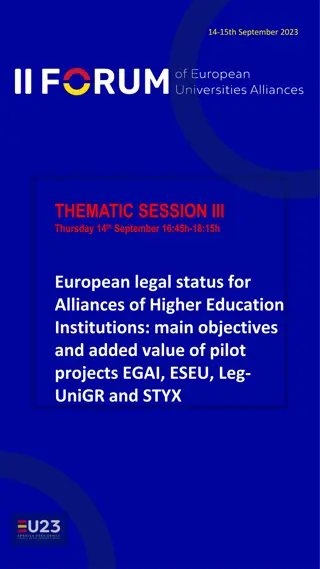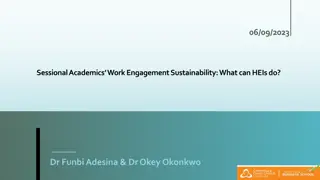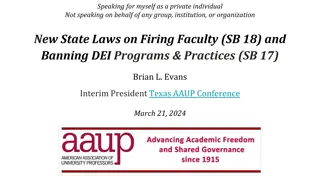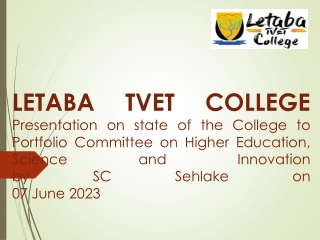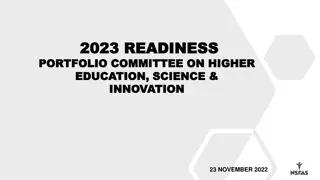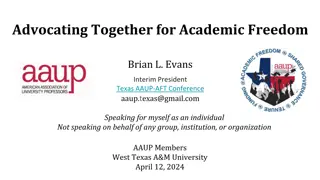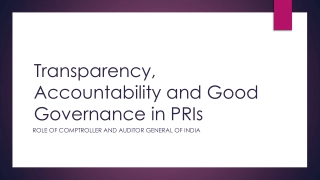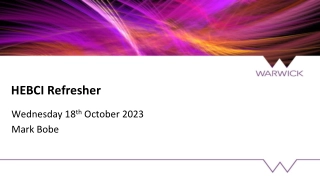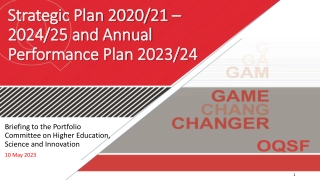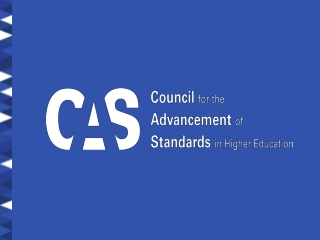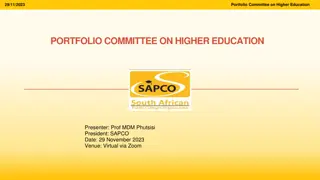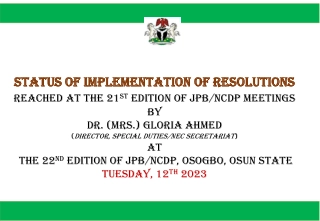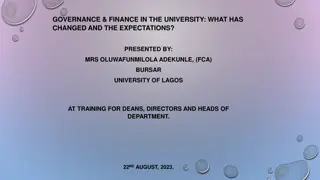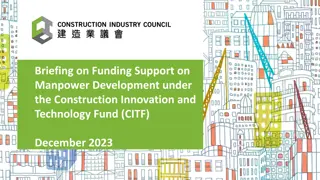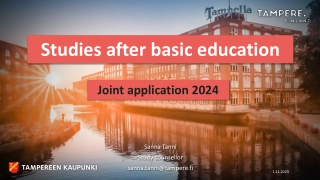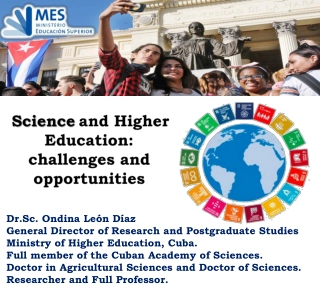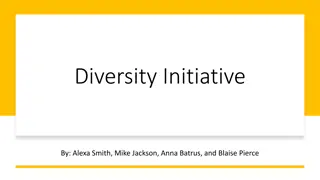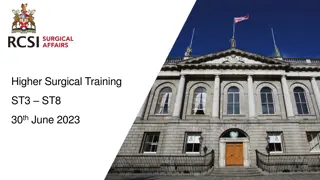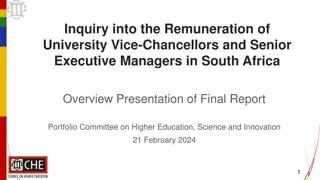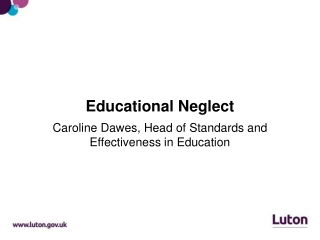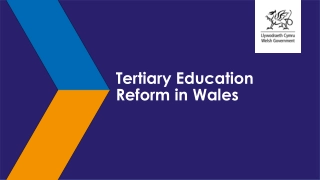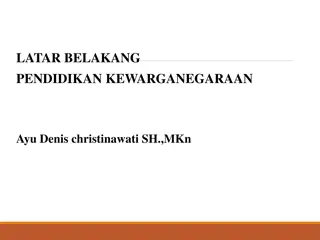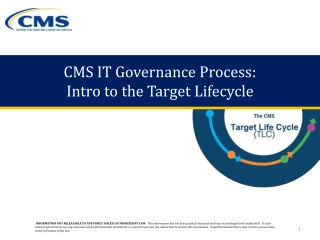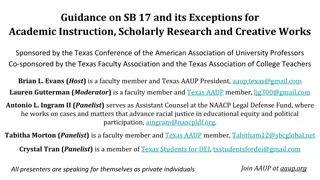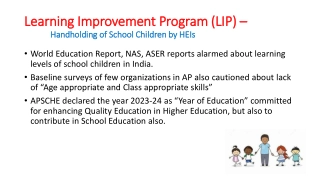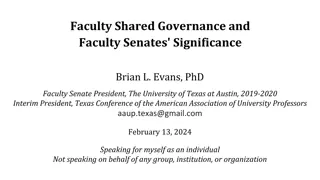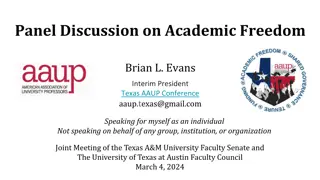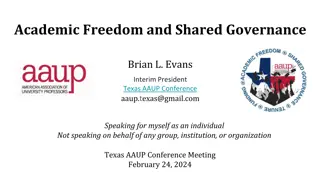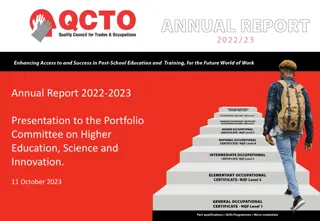Overview of Governance in Higher Education Institutions
In the briefing on the state of governance of higher education institutions, a focus is placed on UCT, UNISA, UFH, and UKZN. Autonomy of universities, accountability for public resources, and the role of governing councils are discussed. The importance of transparency, accountability, and ethical leadership in higher education governance is highlighted.
Overview of Governance in Higher Education Institutions
PowerPoint presentation about 'Overview of Governance in Higher Education Institutions'. This presentation describes the topic on In the briefing on the state of governance of higher education institutions, a focus is placed on UCT, UNISA, UFH, and UKZN. Autonomy of universities, accountability for public resources, and the role of governing councils are discussed. The importance of transparency, accountability, and ethical leadership in higher education governance is highlighted.. Download this presentation absolutely free.
Presentation Transcript
Briefing on the State of Governance of Higher Education Institutions with a focus on UCT, UNISA, UFH and UKZN. 14 June 2023
The Request of the Committee The Committee has requested a briefing on the state of governance of higher education institutions, including special focus on: 1. The University of Cape Town Council (UCT) investigation report into governance and management challenges. 2. The University of South Africa (UNISA) on governance- related matters, progress in the implementation of the MTT Review of UNISA recommendations, including the work of the appointed Independent Assessor. 3. Update on the state of affairs of the University of Fort Hare (UFH) and University of KwaZulu-Natal (UKZN). 2
Governance of Higher Education Institutions Universities are autonomous institutions, meaning that it is Councils that are responsible for developing statutes and rules to govern affairs of universities. According to literature, autonomy should ensure the stability and actualization of the goals and aspirations of a university; insulates the institution from external interference or control in its day-to-day operations; empowers universities in the competitive environment and allows for innovation in responding to challenges and national policy goals; and enables institutions to assume responsibility for their successes and failures. The other side of the coin is that institutional autonomy may be used as a pretext for resisting transformation or lack of accountability to defend mismanagement, or abuse of power and authority by the institutional leadership, and institutions as well as and suppression of ideas. 3
Governance of Higher Education Institutions It is not in the interests of government to micro-manage institutions in higher education, but there is a responsibility to ensure accountability for the use of public resources and having regard to the reputation and integrity of the higher education system. White Paper 3 outlines the principle of public accountability which implies that institutions are answerable for their actions and decisions not only to their own governing bodies and the institutional community, but also to the broader society. Institutions report on an annual basis to demonstrate the results they have achieved with the resources at their disposal; and demonstrate how they have met national policy goals. They also report on their governance arrangements as per the Reporting Regulations (2014). Scrutiny over governing councils and the Executive to ensure the proper governance of the institutions needs to be more vigorous, and the councils who hold office should be motivated by the desire to contribute to the public good. 4
Council Profiles Institution Statute Council Size Vacancies 20 2 Organised labour CPUT 22 26 4 Ministerial appointees CUT 30 28 1 Ethekwini Municipality; 1 council appointee DUT 30 Under Administration MUT 30 28 2 Council appointees NMU 30 30 NWU 30 28 1 Academic employee; 1 Non-academic employee RU Maximum of 30 24 2 Donors SMU Maximum of 26 22 1 Academic Employee; 1 Admin & Support Employee; 2 Municipal nominees SPU 26 24 1 Council appointee SU 25 19 2 Convocation reps TUT 21 27 2 Council appointees; 1 Convocation rep UCT 30 20 1 Council appointee; 1 Academic Employee UFH 22 5
Council Profiles Institution Statute Council Size Vacancies 27 30 UFS* 21 21 UJ 29 1 Support Employee 30 UKZN 23 1 Ministerial; 2 Council appointees 26 UL 23 1 Council appointee; DVCs; 2 Nominees by Premier Maximum of 29 UMP 17 30 UNISA 30 30 UNIVEN 21 2 Donors; 1 Non-academic; 1 IF Chair Maximum of 25 UNIZULU 27 1 DVC; 2 Academic & Non-academic employees 30 UP 29 1 Organised business 30 UWC 19 2 Council appointees 21 VUT 7 2 Ministerial; 3 council appointee; 1 provincial; 1 donor 30 WITS 20 1 council appointee 21 WSU * Council will be reconstituted in view of the UFS Statute approved and published on 10 March 2023 6
State of Governance Institution State of Affairs Governance is stable, Council was reconstituted in 2022, and the amended Statute was approved by the Minister, also in 2022. There are no known governance problems or concerns about maladministration. The Minister appointed Prof Norman Duncan as the Independent Assessor in October 2022 to conduct an investigation into the affairs of the University. This followed the suspension of the VC in 2020, and the Council s handling of the matter and the number of allegations that came to the attention of the Minister. The Report was submitted to the Minister and shared with the Council for its response. This process is underway. No current known governance problems or concerns about maladministration. Statute was reviewed during 2021. The University is currently under administration following the dissolution of the Council. Prof L Van Staden has been appointed as the Administrator to take over the powers and functions of Council. CPUT CUT DUT MUT 7
State of Governance Institution State of Affairs No current known governance problems or concerns about maladministration. NMU No current known governance problems or concerns about maladministration. NWU No current known governance problems or concerns about maladministration. Governance is stable, No current known governance problems or concerns about maladministration. RU SMU No concerns about governance and maladministration. SPU No current known governance problems or concerns about maladministration. A new Chair was recently elected. The Department remains concerned with the developments on the ongoing investigation of the Panel; and continues to monitor the situation. (Further details to follow) TUT UCT 8
State of Governance Institution State of Affairs The University is in a post-administration state; and the Department continues to closely monitor the affairs of the University (Further details to follow in slide 42-46), We remain concerned about safety of executives , staff and students. No current known governance problems or concerns about maladministration UFH UFS No current known governance problems or concerns about maladministration. Governance is stable but the Department remains concerned at the corruption reports relating to private student accommodation. UJ UKZN Governance is stable, and the University is in the process of appointing a new VC. No current known governance problems or concerns about maladministration. No current known governance problems or concerns about maladministration. UL UMP UP 9
State of Governance Institution State of Affairs The MTT and IA Reports found serious governance and management problems, and recommended the appointment of Administrators (dealt with in later slides) UNISA The Department is concerned and is closely monitoring the developments in relation to the calls for the VC to step down. SU Governance is stable, however there are concerns over the safety of members of the senior and executive managements following threats and attempted assassination. UNIVEN Governance is stable, No current known governance problems or concerns about maladministration UNIZULU No current concerns about governance or maladministration. The University is in the process of appointing a new VC. UWC No current known governance problems or concerns about maladministration. WITS 10
State of Governance Institution VUT State of Affairs The post-administration Council took over the governance of the institution in August 2021 and concluded the process of the appointment of the new Vice Chancellor, who started his term of office in February 2022. During the latter part of 2022, serious concerns were raised about his performance. This resulted in a rift between him and the then Council Chairperson who later resigned in October 2022. The Council resolved to place him on special leave in February 2023, and unfortunately, he sadly passed on, on 30 April 2023. Dan Mokoena, who is the University Registrar, is the Acting VC. The Department continues to monitor VUT s state of affairs closely. Governance is stable, No current known governance problems or concerns about maladministration. WSU 11
Governance of Higher Education Institutions However, governance of universities remains a challenge, despite extant governance frameworks. Since 2000, Sixteen Independent Assessors have been appointed for a number of universities in terms of the Act as a result of poor institutional governance and mismanagement, with certain institutions (MUT and CUT) being the subject of more than one assessment. The work conducted by the Independent Assessors uncovers serious challenges with regard to governance, administration and management at some universities. 12
Governance of Higher Education Institutions The Department in response to some of these challenges developed Guidelines for Good Governance Practice and Governance Indicators for Councils of South African Public Higher Education Institutions which set out the principles and key elements of good governance practices to serve as a practical resource to university councils in their governance role as well as indicators for self-assessment by university councils to measure their practices in primary areas of governance. The Department is currently working on a project which is aimed at supporting and strengthening institutional governance at universities. The first phase of the project comprises research on higher education governance, needs analysis surveys and review of the available literature. Ultimately the outcomes of the needs analysis report will inform the interventions that must support and strengthen institutional governance at universities, inter alia, the review of the Higher Education Act; development of resources on university governance; and development of materials that may be used or adapted by facilitators/ trainers appointed by institutions for induction or training sessions of members of council and relevant stakeholders. 13
The University of Cape Town investigation report into governance and management challenges
Governance Challenges at UCT The problems at UCT emerged following the departure of former Deputy Vice-Chancellor: Teaching and Learning, Associate Professor (A/Prof) Lis Lange in April 2022. The crises evolved after a number of questions from the University Senate about the reasons for the departure of the DVC in the context of a Non-Disclosure Agreement and a number of other senior staff departures from the University executive in recent months. The response of the Chair of Council to Senate triggered more questions in Senate and accusations that she and the VC had not been truthful about this matter. The Senate engagements spilled over into the media, and resignations of some members of Council followed. The correspondence the Minister received on these matters suggested that there are deeper problems at the institution. 15
Governance Challenges at UCT The Minister wrote to the Chairperson of Council on 11 October requesting a report on how it was addressing the matters in the public domain. Following a Council meeting of 15 October 2022, the Council undertook to establish a panel of five independent members to investigate investigate the circumstances of these issues. The letter of November 2022, from the Acting Chairperson of Council indicated that the panel was being approached and appointed to commence with its work. Some stakeholders expressed their reservations about the Panel; and felt that an independent assessor would be more appropriate. The appointment of an independent assessor by the Minister may be the relief that many are seeking, however it may be premature to intervene until the independent panel has concluded its work . 16
The ToRs of the Panel The UCT Panel consisting of five independent members was tasked with investigating, among others, the following matters: whether the VC and the Chairperson of Council misled Faculty Boards, Senate and/ or Council regarding the reasons for the former DVC: Teaching and Learning non-availability to serve for a second term; and all matters related to executive relationships, including the number of, and reasons for resignations of staff within and outside the executive. The Panel was required to make recommendations that could help Council and the University to prevent and better address any of the failures of governance the Panel finds. 17
The Departure of Former VC On 21 February 2023, Council adopted a resolution accepting and approving the Memorandum of Agreement (MoA) between the University and the former VC, Professor Phakeng, and agreed to review the terms of reference of the Investigative Panel in order to determine an appropriate form for the Panel that would enable it to consider and investigate issues of governance that have affected and are affecting the University without specifically investigating the conduct of the former VC. Thereafter, news of the early retirement of Professor Phakeng as the UCT VC broke and Prof Sue Harrison was appointed as interim VC. The Council thereafter announced the appointment of Emeritus Professor Daya Reddy as the Acting VC following a resolution at its special Council meeting of 06 March 2023 Professor Reddy officially assumed duty from Tuesday, 14 March 2023. He is to hold this position until a new VC is appointed. 18
Revision of the Terms of Reference Following the departure of the former VC, the Council approved at a meeting on 11 March 2023 the amended terms of reference for the Panel in order to avoid breaching the MoA entered into with the former VC. The Panel shall not conduct its inquiry in an adversarial fashion but shall adopt an inquisitorial approach with the assistance of an evidence leader. The purpose of the inquiry shall be primarily forward looking although, based on its findings, the Panel is authorised to recommend redress where warranted. The Panel is authorised to make recommendations that could help Council and the University to prevent and better address any of the failures of governance the Panel finds. 19
Revised Terms of Reference: The Scope The scope of the inquiry shall exclude any consideration of whether the former VC committed any disciplinary offence. Rather, it shall focus on the following: The circumstances surrounding the resignation or retirement of members of the executive including DVCs, deans, directors and other employees linked to the senior leadership, with the specific purpose of finding out whether executive relations and the failures of governance within Council, its officers and structures contributed to this; Whether any unfairness, breaches of labour law or UCT Statute, regulations and policies took place, whether any remedy is possible and practicable, and whether there are policy gaps that need rectifying; and The role of Council in handling the Ombud report and subsequent reports, and whether there were any failures of governance in this regard that still need to be addressed. 20
Implications of the Revised ToRs The Panel shall not make any specific findings touching on the personal responsibility of the former VC, The former VC shall not be required to appear before the Panel, or to submit evidence to it. However, the Panel shall not disregard any relevant evidence submitted by any person touching on the conduct of the former VC which is imputable to the University provided that the Panel shall treat such evidence with appropriate caution to avoid undue prejudice to the University. The Panel may however make conclusions or findings pertaining to her acts and omissions taken and made in the ordinary course of employment and therefore attributable to the University. 21
Progress Thus Far The work of the Panel has taken long but it is underway. The Panel is now working towards a deadline to complete its work by 14 July 2023, but reserves the option to request further extension if necessary. The Panel submitted an Interim Report on 17 May 2023 to the UCT Council which recommended the removal of Ms Ngonyama as the UCT Chairperson of Council Ms Ngonyama filed an urgent review application at the Western Cape High Court to set aside the work of the Panel and any attempts by the Council to have her removed as Chairperson. On 22 May 2023, Ms Ngonyama announced her resignation as the Chairperson and member of Council with immediate effect. Ms Pheladi Gwangwa who was the Deputy Chairperson of Council at the time, also made an application to interdict the Special Council meeting scheduled for 23 May 2023 from discussing any motions to do with her removal. 22
Way Forward The approach adopted by the Department has been to allow the Panel to conclude its enquiry and the Council to furnish the Minister with the Report. The Minister is awaiting the conclusion of the investigation, and the submission of the Report by the Council. The Minister will therefore consider the actions to be taken thereafter as guided by the prescripts of the Act. 23
The University of South Africa (UNISA) governance-related matters, progress in the implementation of the MTT Review of UNISA recommendations, including the work of the appointed Independent Assessor
The Appointment of the MTT The Minister appointed a task team (MTT) to conduct an independent review of UNISA, focusing on the strategic mandate and purpose of the university within the South African context. The MTT mandate was to examine all contextual and institutional factors that impact upon the current challenges facing the University, advise on the mandate of the institution and its scope of work as a distance education provider, and make recommendations on measures required to ensure that UNISA is strategically positioned as an institution with a clear mandate and mission, supported by the necessary structures and capacity for a sustainable future. The composition of the MTT: Dr Vincent Maphai (Chairperson) Professor John Volmink Professor Louis Molamu Ms Nonkululeko Gobodo, and Professor Brenda Gourley. The MTT submitted its final report dated 30 August 2021 25
Findings and Recommendations The mandate remains appropriate and relevant, as it is essential that the country has a flagship Open Distance e-Learning (ODeL) institution which can focus on excellence in eLearning, lifelong learning provision, and acting as a national resource for ODeL and the HE system in SA. UNISA is perceived by some to be lacking a strategic focus and drifting beyond its distanceeducation mandate by, for example, admitting full-time, and often fresh from school students. There has indeed been a dramatic change in the profile of the student body at UNISA, and this impacts on its strategies for supporting those students but such a development has not translated to mission drift for UNISA in its role as a comprehensive university. UNISA has failed to make adequate provision for dramatic change in the profile of the student body. Enrolment targets were unrealistic and, in some cases, even irresponsible, considering the lack of the institution s capacity. It therefore admits more students than it can support, thus prioritizing access over success. Although UNISA s multiple strategies are, overall, valid, they do not match up to the demands of the current environment nor, indeed are they as ambitious as they could be. UNISA should be a national centre of excellence in ODeL. It could and should be a major presence in the Open Education Resources movement, nationally and internationally. It is neither. 26
Findings and Recommendations There are complex matrix of global, national and internal dynamics that impact on the mission, strategy, and operations of UNISA as well its possible future. While the consequences of these global and national drivers affect all higher education institutions, they do so disproportionately in respect of UNISA. Given the impact of these drivers, the MTT is of the view that every aspect of higher education in South Africa needs to be revisited and higher education policies be re-examined. As such, a National Commission on Higher Education was recommended to address them. UNISA plays a significant role in Teacher Education, as this accounts for over 20% of all UNISA enrolments. Its College of Education is the largest Teacher Education institution in Africa, providing training to over 50% of all qualified teachers in South Africa. Despite this, there is no discernible strategic priority given to Teacher Education, and the MTT recommended that the Minister should urge UNISA to position itself as a National Centre of Excellence for Teacher Education. 27
Findings and Recommendations: Governance related From the governance point of view, the MTT report concludes that the Council is the root cause of the problems at the University based on a number of observations: a) The Council has dismally failed UNISA, as it has not equipped itself, or the Management Committee (MANCOM), with the range of skills and competencies necessary to provide the appropriate strategic guidance and direction to a modern ODeL institution in the 21st Century. b) The current strategy approved by Council does not encompass all aspects of a modern ODeL institution and fails to build on the strengths and address the weaknesses of the institution such as the dysfunctional and outdated information and communications technology (ICT) infrastructure. c) The Council has not demonstrated the knowledge, skill, and experience to guide and direct the production of a comprehensive strategic plan for a modern ODeL institution in the 21st century. d) The Council has failed to ensure that the serious and strategic risks identified in the Risk Register (2013 2015) have been given the attention they deserve. 28
Findings and Recommendations: Governance related Unisa s ICT infrastructure is outdated and has increasingly become less fit for purpose over the years. ICT management has deliberately frustrated the implementation of its strategic priorities. This is regarded as a fundamental dereliction of duty on the part of Council for failing to deliver on its basic fiduciary responsibilities with respect to the infrastructures necessary for education delivery, a function vital to the sound functioning of a university; thus failing to safeguard the health of the academic enterprise. This situation has persisted over several years and is unlikely to change without some drastic intervention. Furthermore, the failure to ensure a robust, modern, and secure ICT infrastructure has damaged Unisa s academic standing and administrative competence as a reputable HE institution. The Council has failed to ensure the basic assurance services and functions necessary to secure effectiveness of governance, risk management and control processes. This places the institution at significant risk. There is scant understanding of the vital importance of Compliance throughout the institution and the far-reaching consequences of its neglect. The need for further urgent investigation by a body with forensic expertise is strongly recommended. There has been a deliberate and systematic plan, over a sustained period, to establish a corrupt network which has resulted in institutional capture. Council has deliberately undermined and incapacitated MANCOM with a view to achieve institutional capture and personal enrichment. In addition, there is a culture of impunity deeply embedded in the institution. 29
Findings and Recommendations: Governance related Based on the evidence presented to the MTT, UNISA suffers chronic management failures in many of the key support systems. The performances of departments such as Supply Chain Management, Human Resource Management, Compliance functions and Finance are seriously compromised and fail the university, putting the entire institution in jeopardy. A simultaneous failure of multiple management systems points to deficiencies at leadership level, as well as a gross neglect of consequence management. The MTT recommended the following: a) The Minister should issue a directive on account of a reasonable belief that the UNISA Council is involved in financial impropriety and/or otherwise mismanaged and/or is unable to perform its functions effectively. b) The Minister should dissolve the Council and appoint an Administrator to whom the VC should account. In addition, the Minister should appoint a multi-disciplinary team of management experts (in Enrolment Management, Facilities Management, Finance, Human Resources, Information Technology) to assist the Administrator. c) A new Council to be re-constituted with a revised set of rules and regulations in respect of the composition and appointment of new Council members. It is the MTT s view that unless Council members are appointed based on their experience, expertise and ethical conduct, past practice will be repeated. In addition, the MTT recommends a scrutiny of potential Council members, in terms of criminal records, and with confirmation of educational qualifications and experience. 30
Council Response to the MTT Report The Council submitted a 178 paged response was accompanied by 57 attachments. The Council began by raising preliminary issues which it viewed as impediments to its ability to respond fully and appropriately to certain aspects of the MTT Report. The Report does not directly indicate specific cases of the alleged maladministration and instead presented broad and general findings and is equally vague in several respects. The allegations and findings made are general, vague and unsubstantiated as such, making it impossible to provide meaningful to response. The Report does not specify the periods and specific dates when the conduct it criticises occurred; the particulars of implicated members of Council and Management. Council pointed to the limited pool of interviewees which in its view privileged certain voices and opinions over others. The Council also categorically denied the allegation made by the MTT of refusal to provide documents. The membership of Prof Molamu to the MTT and him being interviewed by the same was deemed a conflict of interest, given that he was in the employ of the University from 2001 to 2012 and some of the problems could have arisen during his tenure. 31
Council Response to the MTT Report The Council supported or welcomed a number of conclusions and/or observations, namely UNISA being disproportionately affected by global and national drivers that are common to all higher education institution; the impact of the competition in the provision of part-time and/or distance education on UNISA s mandate, strategic positioning, and reputation; the call for the national commission on higher education; the efficacy and sustainability of the university s current business model and strategic positioning; and that the dramatic change in the profile of the student body does not translate to mission drift for UNISA in its role as a comprehensive university. the Florida Campus should not be a new stand-alone Science and Technology institution. 32
Council Response to the MTT Report The Council countered several conclusions and/or observations relating to the enrolment management, the strategy, and the alleged failures of the Council in its responsibilities. Although the Council admitted that the targets were not managed to the requisite levels, as there were greater needs than space available, specifically in 2018 and 2020; but argued that UNISA needs to be funded appropriately per FTE or be allowed to carry much less than it currently does. Regarding the weaknesses of the strategy, the Council argued that The MTT relied on an outdated strategic plan which resulted in the MTT overlooking critical developments that would have given it a different picture of the situation and very likely resulted in a different conclusion. Council reported that following its approval in 2019, a review of the strategy was carried out in 2020, involving an independent review by Deloitte, which included a consideration of the institution s strengths and weaknesses analysis. This process led to the revision of the UNISA 2030 Strategy and the development of the 2021 2025 Strategic Plan, which were duly approved by the Council in 2020. The Council argued that many of the challenges highlighted in the MTT report, including those relating to the implementation of the ICT strategies in the 4IR environment and beyond, were addressed in the revised Strategy. The implementation of the new strategic plan as well as processes to review the delegations of authority framework to ensure that Management is adequately empowered to implement strategic objectives are reported to be underway. 33
Council Response to the MTT Report Regarding the ICT infrastructure of the University, the Council admitted that prior to 2019, the UNISA ICT environment was characterised by aging legacy systems that were no longer fit for purpose or were falling short of addressing the evolving needs of the students and the academic staff. Besides the legacy systems, the ICT infrastructure upon which these systems are hosted was very unstable as most of the infrastructure components had either reached end of life and/or were not supported by the original equipment manufacturers. The Council indicated that it had adopted a multi-component ODeL ICT strategy which encompass a number of flagship projects underpinned by the Infrastructure as a Service (IaaS) project, which is meant to replace legacy ICT infrastructure upon which other business applications are hosted. In several instances in the response, the Council blamed the management for failures in this area. Conclusion 21 states that the outdated ICT infrastructure together with the general lack of compliance and culture of impunity identified above, cause the MTT to have serious misgivings about the security of the information held on the ICT systems and the dangerous opportunities such lack of security presents, all of which compromise the academic project . The Council responded to say Again, it is not apparent from the report why Council is implicated in the alleged deliberate conduct of management . 34
Council Response to the MTT Report The Council also rebutted the assertions of the MTT that it has failed to inter alia to ensure that to ensure that the basic assurance services and functions necessary to secure effectiveness of governance, risk management and control processes are in place; to engender an enabling and ethical culture befitting a knowledge institution; to distinguish between its roles responsibilities from those of MANCOM; to ensure that the serious and strategic risks identified in the Risk Register (2013 2015) have been given the attention it deserve; to safeguard the health of the academic enterprise, the heart of the institution; and to equip itself with the range of skills and competencies necessary to provide the appropriate strategic guidance and direction to UNISA. The Council argued that it is only responsible for appointing the ten (10) members with a broad spectrum of competencies; and that the balance of the members of Council are appointed directly by various constituencies prescribed by both the Higher Education Act and the Institutional Statute. 35
Council Response to the MTT Report The Council also argued that the MTT statement of failures of the compliance function are misplaced, although it recognizes that there is a need to strengthen the compliance function considering its mandate in the Compliance Policy versus the size and the complexity of the university. On allegations of capture , the Council argued that the Report does not directly indicate specific cases of such occurrences and instead presented broad and general findings and is equally vague in several respects. The Minister had also requested the Council to make representations with respect to the intervention provisions of the Act, namely the issuance of a Ministerial directive, the appointment of an independent assessor or administrator. The Council contended that the requirement of procedural fairness cannot be satisfied under the current circumstances where Council has not been provided with the information and evidence that informed the MTT s conclusions. 36
Actions Taken by the Minister after the MTT Report The Minister met with the Council 28 June 2022 to discuss the MTT Report and the way forward. Ultimately, in light of the response of the Council and the misgivings that were raised about the limitations of the Report, as well as the continuing allegations and reports of mismanagement received by the Minister and the Department at the time; an independent assessor was deemed to be a more rational approach. By Notice in the Government Gazette (No. 46904, Notice No. 2480 of 13 September 2022), the Minister announced the appointment of Professor Themba Mosia as the Independent Assessor to conduct an investigation into the affairs of UNISA. The overall purpose of the investigation was to advise the Minister on the source and nature of problems; and measures required to restore good governance and management. 37
Scope of the Investigation a. the functioning and efficacy of the University s governance and management structures. b. the operations of the Office of the Registrar in relation to the management of academic affairs, registration and certification matters and any other matters that the Independent Assessor believes warrant investigation. c. the state of policies and procedures of the University pertaining to financial management, supply chain management, and procurement; and allegations of financial irregularities. d. the state of human resource policies and practices of the University, particularly in relation to enhancing organisational efficiency and employment relations at the University. e. conduct a detailed analysis and report on the circumstances and reasons for the significant number of staff suspensions, disciplinary cases, and dismissals at the University since 2018. f. the allegations of misconduct and mismanagement against the VC. g. any other matters that, in the opinion of the Assessor, may impact on the effective functioning of the University from the analysis of problems relating to governance and management. 38
The Work of the Independent Assessor The period of appointment was 90 days from the date of the publication of the Notice (13 Sep 2022), and thereafter extended for a further period not exceeding 90 days from 13 December 2022. The Act requires in Section 47(2) that the Minister must, within 90 days of receiving the Report, provide a copy of the report to the Council concerned, table the report before the National Assembly and publish such report in the Government Gazette. The Minister shared with the Council of UNISA on 12 May 2023, and it was thereafter leaked and circulated on social media platforms. The Report received extensive media coverage. The Report has been published in Government Gazette (No. 48660, Notice No. 3461 of 26 May 2023). The Published Report was submitted to the Honourable Speaker for tabling to Parliament on 29 May 2023. Overall, the Report recommends that the Minister should consider appointing an administrator in terms of section 49B,to take over the role, powers, functions and duties of the council and take over and execute the management of the University; on the basis that the Report reveals financial or other maladministration of a serious nature or serious undermining of the effective functioning of the University. 39
Way Forward The Minister has received the response of the Council on 12 June 2023. The Minister will consider the response of the Council; and decide on the appropriate action as provided for and guided by the Higher Education Act, taking into account the interests of UNISA as a public higher education institution. 40
Update on the state of affairs of the University of Fort Hare (UFH) and University of KwaZulu-Natal (UKZN)
University of Fort Hare (UFH) During 2019, UFH was placed under administration following the dissolution and resignation of the council, respectively. The mandate of the UFH Administrator was confined to the role, powers, functions and duties related to the governance of the institution for an initial period of 12 months which was extended for a further six months, with the appointment of a second Administrator. The UFH administration came to an end in November 2020 when a new Council was constituted. The close-out reports of the two Administrators were submitted on 29 June 2020 and 13 May 2021, respectively. In terms of the post-administration arrangements the Council is to report to the Minister biannually through the Mid-term and annual report, on the implementation of the Consolidated Turnaround and Performance Improvement Plan (CTPIP) and other measures to address the findings of the Independent Assessor. Notable progress has been made with regards to the CTPIP (2021 Annual Report) 42
CTPIP Report (2021 Annual Report) Project 1: Governance Enhancement Institutional rules to give effect to the amended Statute; along with the terms of reference for all Senate committees, the Institutional Forum Charter; and the Rules of the Student Discipline and the Student Code of Conduct are finalized and approved by Council. Work was underway to finalise the new delegations of authority framework and its supporting documents. Project 2: Financial Sustainability - The Finance Division has developed an action plan to address the findings. UFH has established an Entities Review Project, to look at the entities of the University, their financial, legal and governance processes. The process to implement the action was initiated. Project 3: Talent Management - All Executive and Senior Management positions have been filled in line with the submitted Turnaround Plan. Eight (8) policies and procedures have been revised. An organizational re-design proposal was also finalized for Council approval. Project 4: Infrastructure Development and Maintenance - Although the Project Management Unit had capacity issues, there were some developments made relating to the 7 contracts covering the 85 lecture halls. The negotiations for the resumptions of the construction of the Early Childhood Development Centre in East London were completed and fees discussions concluded. 43
University of Fort Hare (UFH) Project 5: Review of the Academic Enterprise The University successfully concluded a review and clean-up of its PQM. Improvement Plans to address areas of concern were developed and their implementation were being monitored by Senate. Following the final Council on Higher Education (CHE) panel report emanating from the CHE Doctoral Review and improvement plan, the University revised and approved the Doctoral rules. Project 6: Management Information Systems - Funding was availed for a business process re-engineering exercise to map out business processes and procedures, the procurement process for consultants and an IT Support Specialist was also initiated. Project 7: Institutional Culture - Six (6) Supply Chain Management investigations conducted by the Internal Audit Division, informed by the Independent Assessor s Report, were developed and completed. The backlog of outstanding Disciplinary Committee cases for students has been cleared. 44
University of Fort Hare (UFH) The situation remain fragile. Safety concerns of University staff, poor stakeholder relations, and the ongoing allegations and investigations compound the fragility. The Council Chairperson Bishop I Abrahams recently resigned from the Council as a member and Chair of Council from 15 March 2023 and the Deputy Chairperson (Dr Siphokazi Koyana) is the current Acting Chairperson. The Department holds quarterly meetings with the Management, as part of the post-administration support and oversight. The Department continues to monitor the developments relating to the various investigations by law enforcement agencies, relating to the allegations of corruption, the murder of employees and arson attacks. The Department remains concerned management. about poor stakeholder 45
University of KwaZulu-Natal (UKZN The University governance has been stable. Although the University has been rocked by some scandals. Earlier this year (January 2023), the University warned of individuals who falsely promise landlords and property owners student residences contracts for the 2023 academic year in exchange for money. Reports indicate that members of the University community, including students, were behind these scams. Towards the end of March 2023, news broke of a Westville police investigation that exposed a network of UKZN staff and former student leaders who allegedly extorted as much as R80 million from private accommodation providers. A group of six people three UKZN staff members, two former SRC presidents and one SRC member based at the Howard College campus, were arrested. It appears that the scheme has been operating for years. Investigations are ongoing and court hearings proceeding. 46
Thank You 47
